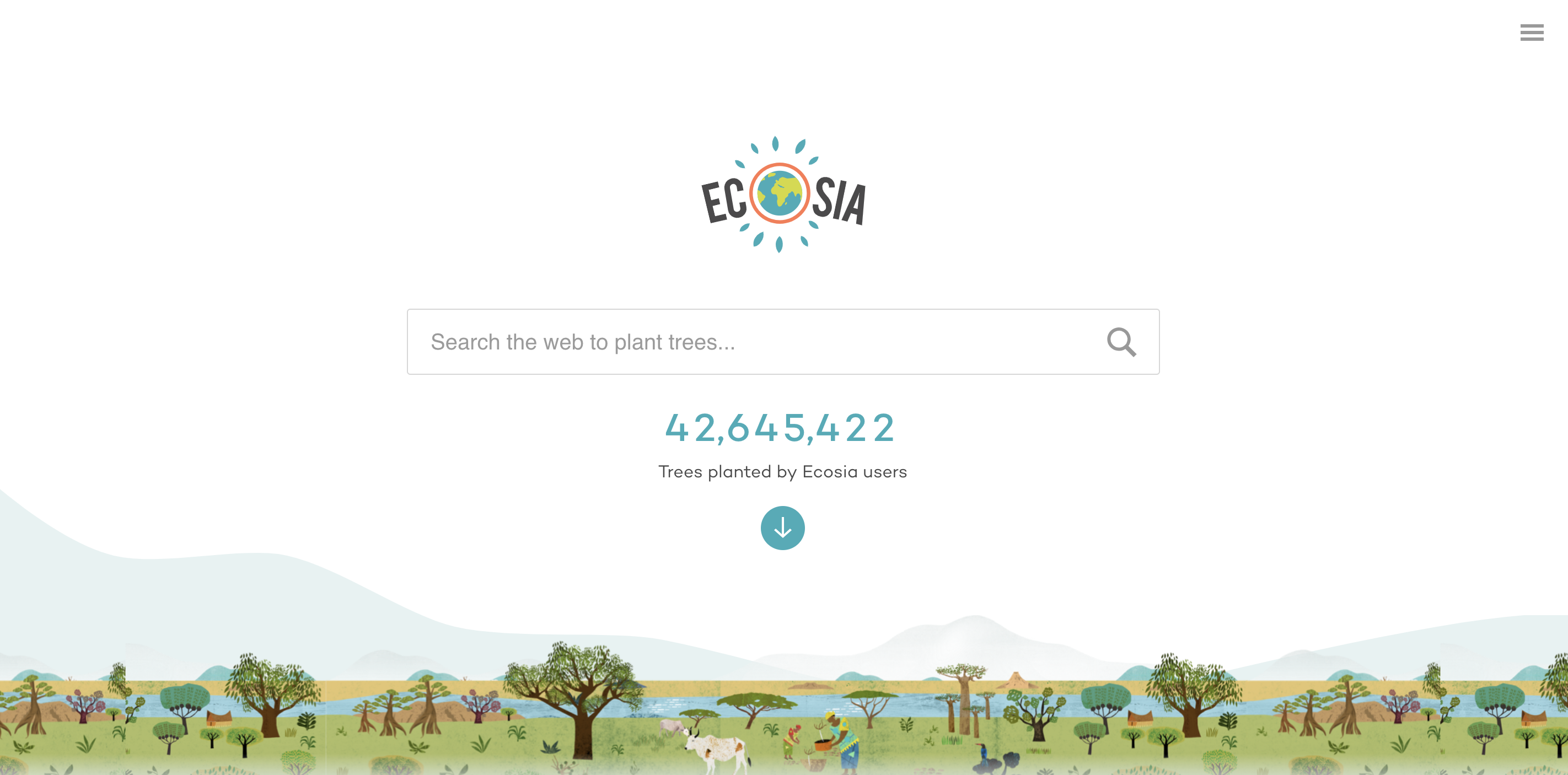Here’s a question: Should the University of Leeds and Leeds University Union Adopt ‘Ecosia’ as the Default Search Engine on all their computer and devices?
With LUU’s ‘Better University Forum’ taking place tonight, a hot topic on the lips of many students will be, to nobody’s surprise, the ever prevalent issue of climate change and environmentalism. The University of Leeds may have recently pledged to remove single-use plastics from campus by 2023, but there are still plenty more ways in which our institution of education could be fighting climate change. The ‘Better Forums’ represent an opportunity to use student voices to encourage the University to take these necessary steps.
Now more than ever, the need for improved sustainability and a heightened awareness of our environmental impact is required. Last month, climate scientists from the United Nations predicted we have twelve years to implement climate change controls before we spiral beyond a point of no return. Bill Gates is now part of a group (Breakthrough Energy Ventures) investing over $1 billion in efforts to counteract climate change through radical energy startups capable of drastically cutting global emissions. The Union and University of Leeds should likewise be using its influence in the field of higher education to implement changes that further support humanity’s combined goal of fighting climate change. One of the most simple of changes would be the adoption of Ecosia as the default search engine at Leeds.
Ecosia was founded by Christian Kroll in 2009. It is a CO2 neutral search engine which uses its profits to plant trees. On average, 45 searches on Ecosia equal one tree planted, meaning that one new tree is planted every 1.1 seconds as a result. The effect? Every tree planted removes 1kg of CO2 from the atmosphere. This environmental venture is funded through search engine ads via the Ecosia browser extension or phone app. Each search earns, on average, 0.5 cents and the planting of one tree roughly costs 25 cents. Over 42 million trees have already been planted over Ecosia’s nine-year lifetime through afforestation projects all over the world. Leeds University and LUU are in a position to help increase this number.

[Download Ecosia through the QR code, above^]
Planting trees has more benefits than simply filtering and lowering the worlds CO2 content. Not only are trees planted, but the act of doing so sustains local communities and provides jobs. Planting projects employ a number of local people around the world, and thus allow locals to send their children to school. They also provide fertile soil for crops and tree products, such as coffee and nuts, which can provide nourishment for local communities and various trading opportunities. For example, a farm in Indonesia plants cocoa trees from which they benefit financially. As a result, the farm can afford to fend off rich palm oil corporations that wish to exploit the earth. If we can plant trees and enrich lives from simply searching the web, it would be absurd not to do so.
The University has approximately 34,000 students and 8,000 staff. If Ecosia was installed across campus and on all computers and devices, the University could make a huge environmental impact. If 6,000 students each made three Ecosia searches a day, 18,000 searches would be made overall, a total of 18,000 Kg of CO2 would be removed from the atmosphere and 400 trees would be planted – all in a single day. Imagine what the impact could be if such a statistic was maintained for a whole calendar year!
There has never been a more perfect and pressing time to implement Ecosia, especially with the University’s recent forays into reducing waste and encouraging recycling on campus. The Ecosia initiative falls in line with the Union and University’s goals. Sussex University has already achieved this feat by installing Ecosia on their PCs, and it would only make sense for Leeds to join them in our collective quest for sustainability!
Be sure to make it down to the Better University Forum tonight (Riley Smith Theatre, 5.30-7.30pm) and show your support for a search engine which will truly make the University of Leeds, and the world, a better place.
Rachel Djangmah

